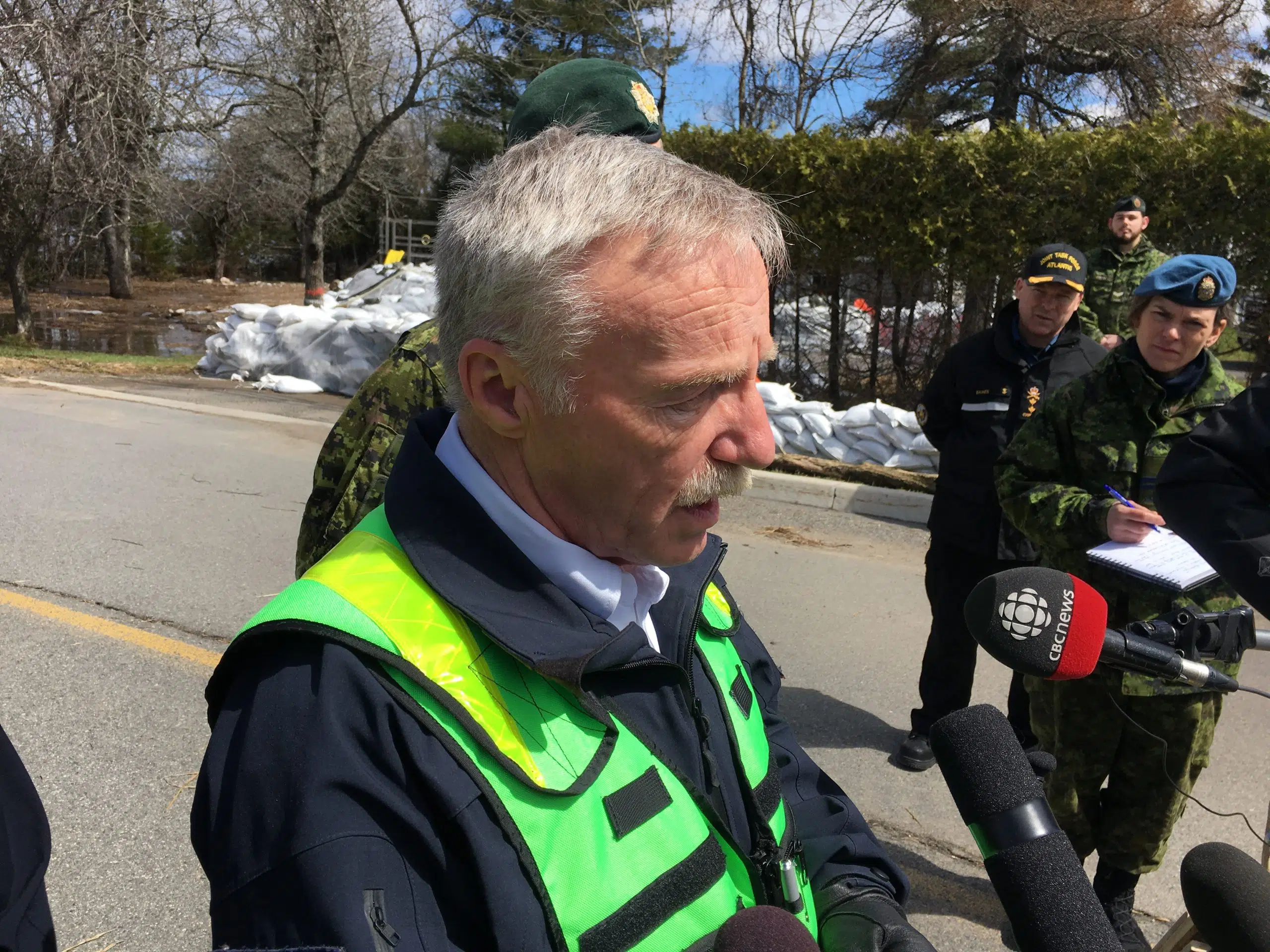
Greg MacCallum, director of New Brunswick EMO, during a River Watch briefing in Fredericton. (Submitted/Government of New Brunswick)
New Brunswick EMO is reminding people to stay alert as water levels remain high in the Saint John River basin.
Director Greg MacCallum says residents can expect floodwaters to gradually recede over the next few days.
“That simply means we’re going to get back to flood stage in some cases,” said MacCallum on Saturday. “It’ll be a number of days before we’re below flood stage.”
MacCallum said there is still a lot of activity going on, including evacuations, safety patrols by boat, and wellness checks in affected areas.
He said people need to understand the flood is a multi-day event and inconveniences, like road closures, will continue for some time.
Water will remain high in the St. John River basin for the coming days. People should continue to be vigilant and avoid any activities on the water, as currents are still strong and there is significant debris in the water.
NEWS RELEASE: https://t.co/T8JySwHJ1O pic.twitter.com/W6xGLLOIjH
— NBEMO / OMUNB (@NBEMO_OMUNB) April 27, 2019
The Department of Transportation and Infrastructure is asking for patience as roads remain closed due to flooding.
Spokesperson Ahmed Dassouki says they have reopened 23 roads so far but more than 80 are still barricaded.
Dassouki said it could be several days before the Trans-Canada Highway from Oromocto to River Glade is open again.
“Water is still touching parts of the highway, is on the highway in some areas, and there’s a lot of debris there that needs to be cleaned up,” he said. “Once the waters recede, MRDC and crew would have to do some inspections.”
Dassouki said just because water is no longer covering a road does not mean it is safe to travel.
You can find the latest list of road closures on the NB 511 website.
Just because water is no longer covering a road does not mean it is safe for travel. The public is asked to remain patient. A list of the latest road closures is available online: https://t.co/nz5FTs799Z pic.twitter.com/WGkNj62VKX
— NBEMO / OMUNB (@NBEMO_OMUNB) April 27, 2019
As floodwaters slowly fall across the province, many people will be starting to clean up the mess left behind.
MacCallum urged people to avoid contact with floodwaters, if possible, as they contain sewage overflow in some cases.
“They may contain other chemical contaminants or debris,” he said. “We want to make sure people are very mindful about personal hygiene, cleaning up if they’ve been exposed to that water.”
MacCallum also encouraged New Brunswickers to step up, reach out and help one another as they are able to.




